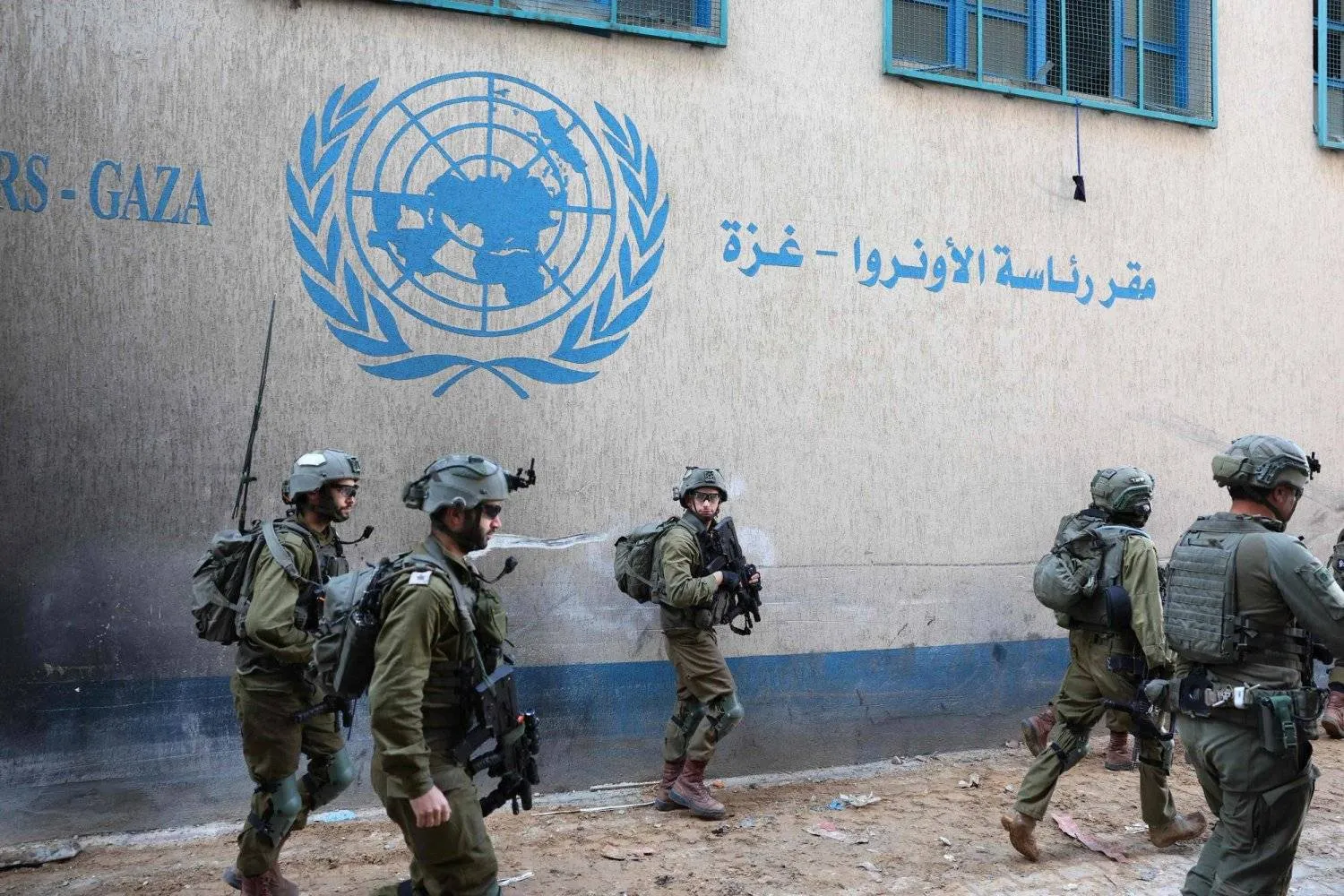A new US intelligence assessment found it is likely that some employees of a United Nations agency took part in Hamas’s Oct. 7 assault on Israel but says the US can’t verify Israeli allegations that a larger number of UN workers have links to the attack, people familiar with the report said.
Washington and other Western capitals last month suspended funding for the United Nations Relief and Works Agency, which supplies aid to Palestinians in the West Bank, Gaza, Lebanon, Syria, and Jordan after Israel shared findings that at least 12 UNRWA employees were connected to the attack of Hamas.
Israeli intelligence agencies said they concluded that 10% of all UNRWA workers had some kind of affiliation, usually political, with Hamas. UNRWA employs around 12,000 people in Gaza.
According to a report by Wall Street Journal, the new intelligence assessment, as described by the officials, doesn’t dispute Israel’s allegations of links between some staff at UNRWA and militant groups, but it provides a more measured appraisal of Israel’s assertions than public statements by US and Israeli officials.
Secretary of State Antony Blinken last month called Israel’s assertions “highly, highly credible” but also said the agency played an essential role in providing relief to people in Gaza.
UNRWA fired the employees allegedly involved in the Oct. 7 attack.
In the new report, which was completed last week, the US’s National Intelligence Council, a group of veteran intelligence analysts, said it assessed with “low confidence” that a handful of UNRWA staffers participated in the Oct. 7 attack, those familiar with the findings said.
A low-confidence assessment indicates that the US intelligence community believes the claims are plausible but cannot make a stronger assertion because it doesn’t have its own independent confirmation.
US officials said that American spy agencies haven’t traditionally focused on gathering intelligence on Gaza, and that Israel hadn’t shared the raw intelligence behind its assessments with the US, limiting their ability to reach clearer conclusions.
The council’s findings, in a roughly four-page report, were circulated within the US government last week, those familiar with the document said. The Office of the Director of National Intelligence—which includes the National Intelligence Council—the State Department and the White House declined to comment.
Tamara Alrifai, UNRWA’s director of external relations and communications, said that the organization takes steps to aggressively protect its neutrality.
“We went the extra mile and fired people on the basis of how serious the allegations are,” she said.
Days after the initial charges, Israeli officials distributed to news organizations a six-page dossier, a summary of a larger report, that included details of the allegations.
Israeli officials say they based the claim on lists of UNRWA employees found in Gaza during the current military campaign that were then cross-checked with other sources of intelligence. UNRWA says it regularly gave updated lists to Israel’s government.
The report also notes what it says is Israel’s longstanding dislike of the UN agency, two of those familiar with the document said.
“There is a specific section that mentions how Israeli bias serves to mischaracterize much of their assessments on UNRWA and says this has resulted in distortions,” one person familiar with the report said.
The US assessment also says that the reality of Hamas’s control in Gaza means that the UN agency has to interact with the group to deliver humanitarian relief, but that that doesn’t mean that the agency is collaborating with the group, the person said.









